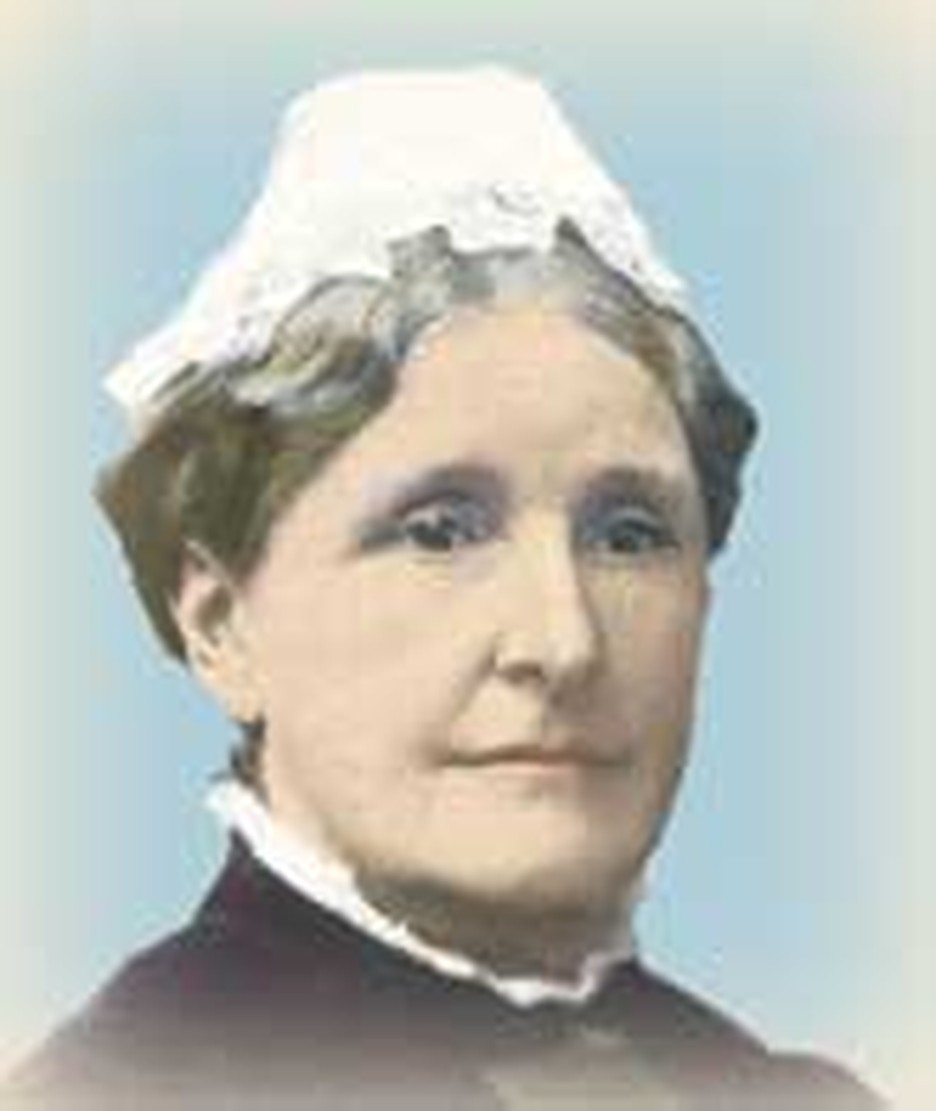
Heart beating in fear, feeling terribly wicked, Hannah Whitall slipped into the Academy of Fine Arts in Philadelphia. "I suppose now I shall go straight to hell," she thought, and was surprised that God did not strike her dead. She had been brought up in a loving but strict Quaker home. The girl thought of herself as a Christian and believed she must be good to please God and win his salvation. Unfortunately, she never heard the plain gospel story. Instead, she was taught scruples about art and clothes and other things.
At sixteen, Hannh told her journal, "...I cannot really become righteous until I repent, and I cannot repent." Hungry to find God, she searched her emotions, hoping for feelings of repentance and of goodness. When she could not work up a feeling of love for God or a desire to do his will, she despaired of salvation. After years of misery, she even began to doubt the existence of God. While still living in this despair, she married and had children.
Sometimes our cruelest losses are the avenue to our greatest gains. For Hannah Whitall Smith, the loss of a five-year-old daughter finally unlocked the gates of heaven. Unable to bear the thought that the girl had gone into a cold, impersonal nothingness, she sought desperately for a ray of light. At that time, Philadelphia businessmen came together for noon prayer meetings. Hannah wondered what prompted so many to give up their lunch hour and went to see. "Suddenly something happened to me. What it was or how it came I had no idea, but somehow an inner eye seemed to be opened in my soul, and I seemed to see that after all God was a fact--the bottom fact of all facts--and that the only thing to do was to find out all about him."
By August 30, 1858 Hannah Smith had recorded a full commitment to belief in Christ as her savior from sins. She saw that salvation was not based on feelings but on God's facts. At once she shared this insight with others and began to attend a Plymouth Brethren congregation.
Some time later she realized that she must suffer with Christ if she was to enjoy him fully. She prayed to share His sufferings. Expecting persecution, she came under a terrible burden for souls instead--she could scarcely bear to look into the faces of the unconverted. She took to wearing a thick veil--but more than ever spoke to people about Christ. Her anguish eventually led her to teach that all people will be saved.
Although Hannah was a Christian, she still found herself slipping into moments of anger, bitterness, and irritability. Unable to change herself, she prayed for change. It was then she overheard some simple folks talking of new depths of Christ they had discovered. Feeling contemptuous of them for their lack of learning, Hannah nonetheless attended one of their meetings. They demonstrated a character she lacked and she became their eager student.
"Christ came to save us from the power of sin as well as the penalty of sin," they told her. The secret was to abide in him. Christians are not meant to live joyless, defeated lives, but to abound with joy and victory. As Paul says, "sin is not to have dominion over us."
One of her daughters pleaded with her to put her wisdom into a book. Hannah did so, over twenty years before she died on this day, May 1, 1911. Theologians say The Christian's Secret of a Happy Life teaches the error of Quietism: that we must do nothing and let Christ do it all. But her book has encouraged generations of Christians with sage advice such as, "When doubts come, meet them, not with arguments, but with assertions of faith. All doubts are an attack of the enemy; the Holy spirit never suggests them--never. He is the Comforter, not the Accuser; and He never shows us our need without at the same time revealing the Divine supply." - Hannah Whitall Smith
Bibliography:
- Foster, Warren Dunham. Heroines of Modern religion. (New York: Sturgis and Walton, 1913).
- MacArthur, John, jr. Our Sufficiency in Christ. (Dallas: Word, 1991, page 194).
- Smith, Hannah Whitall. The Christian's Secret of a Happy Life. (Various editions).
- -------------------------- The Unselfishness of God. (Her spiritual autobiography).
- "Smith, Hannah Whitall." Dictionary of American Biography.
Last updated July, 2007

.jpg)
